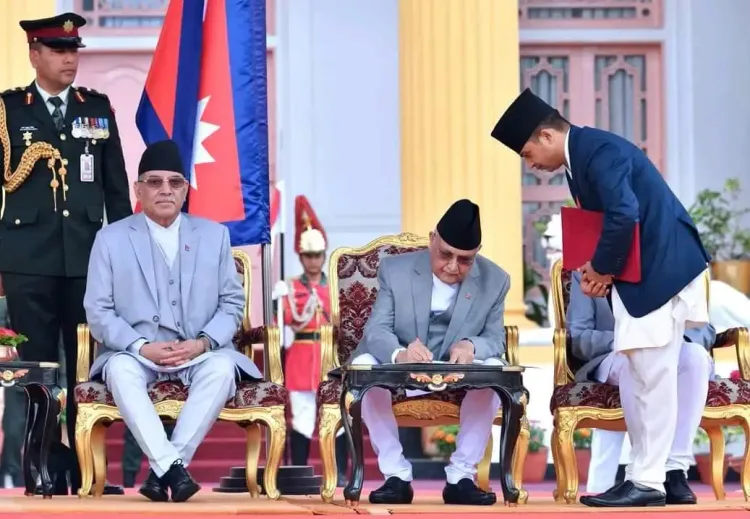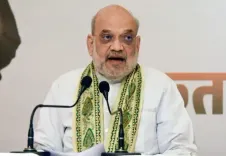Nepal's Government Plans to Present Five Ordinances in Parliament This Wednesday

Synopsis
Key Takeaways
- The Nepalese government aims to introduce five ordinances.
- The ruling coalition has a majority in the lower house.
- The controversial land ordinance will not be included.
- Support from the JSP-Nepal is crucial for passing ordinances.
- Opposition parties are concerned about the legislative process.
Kathmandu, Mar 4 (NationPress) The government of Nepal, under the leadership of Prime Minister Khadga Prasad Oli, is preparing to present five ordinances at the House of Representatives, the lower chamber, on Wednesday. The ruling coalition has instructed its Members of Parliament (MPs) to ensure their attendance during the session and remain until the ordinances are voted upon.
The Oli administration maintains a majority in the lower house, with 88 MPs from Congress and 78 from the Unified Marxist Leninist (UML) among the 275 members of the House of Representatives. The government anticipates that the ordinances will pass without difficulty in the lower house.
Despite this, the administration opted to proceed with the five ordinances, deliberately excluding the contentious land ordinance, which has sparked significant debate within the ruling coalition. This move followed a meeting in February where coalition leaders agreed to advance with the five ordinances that faced little opposition in the House of Representatives, as reported by Kathmandu Post.
However, the coalition is lacking sufficient numbers in the upper house, known as the National Assembly. The Congress holds 16 seats, and the UML has 10 in the 59-member assembly. The support of the Janata Samajbadi Party-Nepal (JSP-Nepal), which boasts three seats in the National Assembly, has become essential for the ruling coalition to successfully pass the ordinances. The JSP has indicated that the land-related ordinance, identified as the sixth ordinance, must be eliminated for them to support the other five.
The JSP-Nepal, led by Upendra Yadav, had previously voted in favor of the KP Sharma Oli government during the floor test last July. Although the JSP is not part of the government, it continues to back the ruling alliance. Another Madhesh-based party, the Loktantrik Samajbadi Party (LSP), is already included in the Oli-led Cabinet. Despite agreeing to support five ordinances, both JSP-Nepal and LSP have made it clear that they reject the land-related ordinance.
Prime Minister Oli and his coalition partners assert that these ordinances are urgent and necessary. However, opposition parties in Nepal have voiced their concerns, criticizing the government for circumventing the standard legislative process. The ordinances must receive approval from both houses of Parliament in Nepal within 60 days of their introduction, but their future in the National Assembly remains uncertain, as reported by Kathmandu Post.









